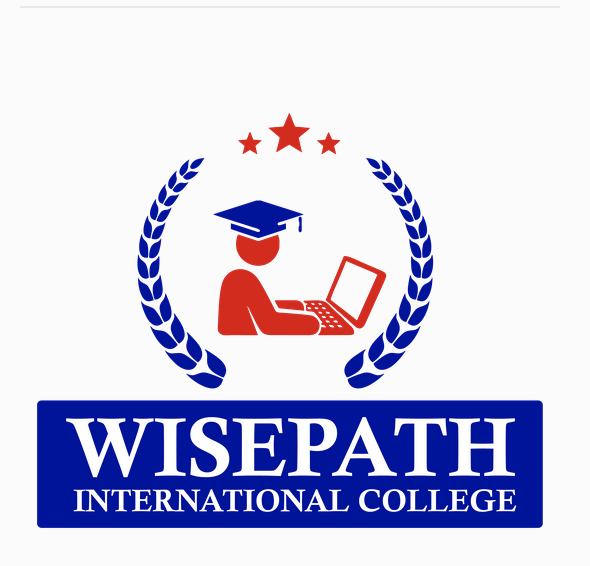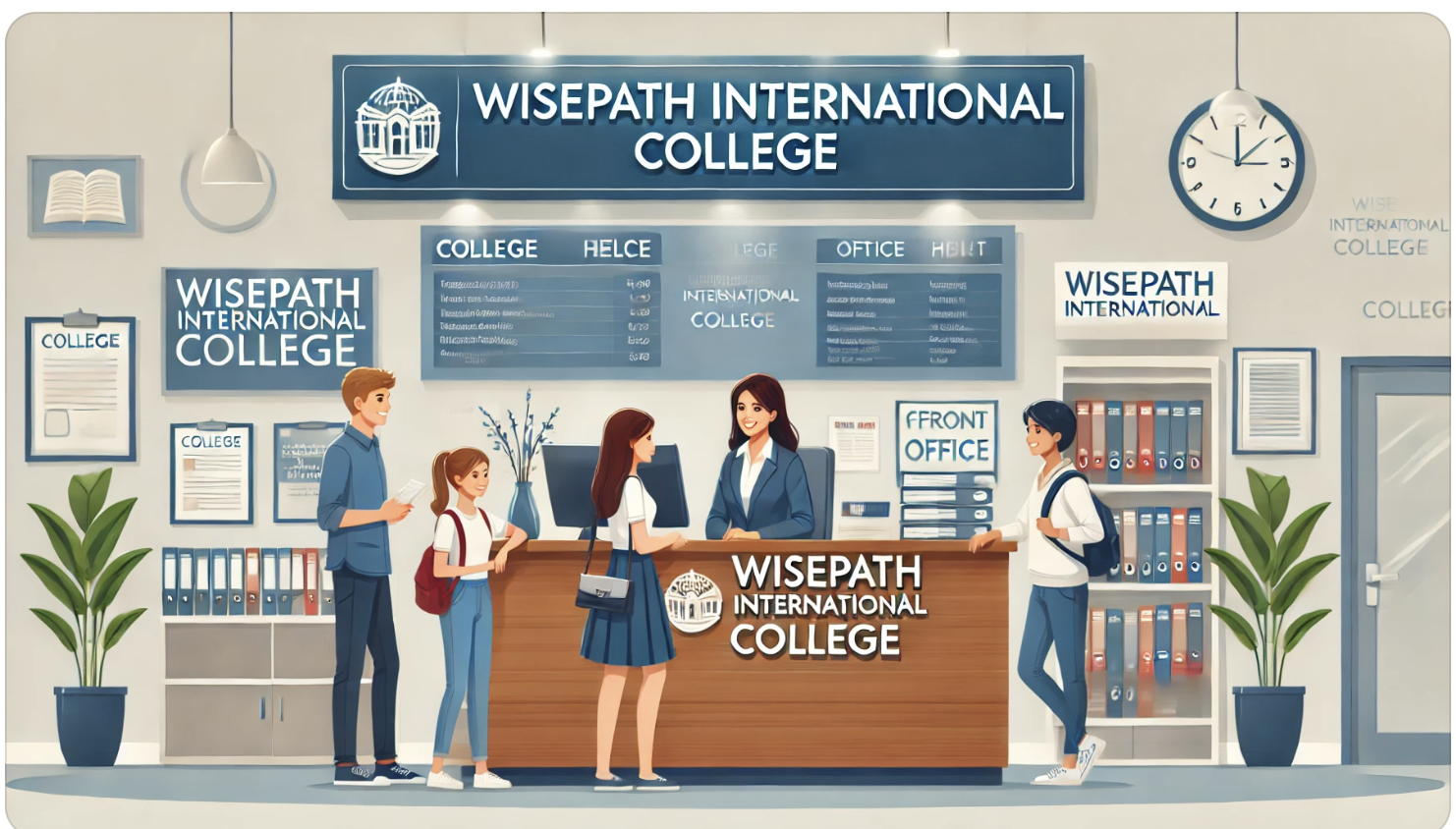
COMPETENCY BASED CURRICULUM CBC
Introduction to the Kenyan Education System
The Kenyan education system has undergone significant reforms to align with global trends in education and meet the needs of a dynamic, skills-oriented economy. Traditionally, the country followed the 8-4-4 system, which consisted of eight years of primary education, four years of secondary education, and four years of university education. However, the recent introduction of the Competency-Based Curriculum (CBC) marks a significant shift toward a learner-centered approach to education.
Overview of the Competency-Based Curriculum (CBC)
The CBC, introduced in 2017, is designed to develop students’ knowledge, skills, values, and attitudes to address real-life challenges. Unlike the previous 8-4-4 system, which heavily emphasized exams and rote learning, the CBC focuses on equipping learners with practical skills and competencies. This curriculum is structured into three main levels:
- Early Years Education (Pre-primary to Grade 3)
- Middle School Education (Grades 4-9, including Junior Secondary)
- Senior School Education (Grades 10-12).
In particular, Junior Secondary (Grades 7-9) plays a crucial role in exposing learners to a broad curriculum that includes core subjects and optional pathways such as arts, technology, and sports, allowing students to explore their talents and interests.
Primary Education and Transition to Junior Secondary
Primary education in Kenya spans Grades 1-6 under the CBC framework. At the end of Grade 6, students sit for the Kenya Primary School Education Assessment (KPSEA), which evaluates their readiness for Junior Secondary. The transition to Junior Secondary emphasizes skill development in areas such as problem-solving, communication, and collaboration.
Junior Secondary School (JSS)
Junior Secondary School (JSS) in Kenya, part of the Competency-Based Curriculum (CBC), spans Grades 7 to 9 and serves as a critical transition from primary to senior school. It aims to nurture learners’ talents, skills, and values while preparing them for specialized career paths. The objectives of JSS include fostering critical thinking, problem-solving, collaboration, and creativity. The curriculum is broad and includes core subjects like mathematics, science, languages, social studies, and health education, alongside optional pathways such as performing arts, technology, and vocational skills. This holistic approach equips learners with practical competencies for personal growth and societal contribution.
Kenya Certificate of Secondary Education (KCSE) in the 8-4-4 System
The 8-4-4 system was centered on academic achievement, culminating in the Kenya Certificate of Secondary Education (KCSE), a high-stakes national examination at the end of secondary school. While this system produced highly knowledgeable students, it often neglected essential skills like critical thinking, creativity, and adaptability, which are crucial in the 21st-century job market.
Advantages of the CBC Over the 8-4-4 System
- Holistic Development: The CBC nurtures learners’ intellectual, emotional, and physical development, compared to the 8-4-4 system’s focus on academic performance.
- Practical Skills: CBC integrates hands-on learning, enabling students to apply their knowledge to real-world problems.
- Learner-Centered Approach: Emphasis is placed on individual learners’ strengths, interests, and needs, fostering personalized education pathways.
- Reduced Exam Pressure: Continuous assessment throughout the academic journey reduces the pressure of end-of-cycle national exams, a hallmark of the 8-4-4 system.
- Talent Development: CBC promotes talents and career-oriented pathways, including technical and vocational education, which were often overlooked under the previous system.
In conclusion, the Kenyan education system is evolving to create a generation of well-rounded, skilled, and adaptable citizens. The CBC represents a forward-thinking model that prepares learners for the challenges of a modern, interconnected world.


CBC PP1 SUBJECTS
In the Competency-Based Curriculum (CBC) in Kenya, the subjects taught to Pre-Primary 1 (PP1) are foundational and aimed at holistic development. The key learning areas include:
Language Activities
- Develop communication skills through listening, speaking, and pre-reading activities.
- Activities include storytelling, singing, role-playing, and reciting rhymes.
Mathematical Activities
- Introduce basic numeracy concepts such as counting, sorting, matching, and identifying shapes.
- Emphasis is placed on hands-on learning through play and practical activities.
Environmental Activities
- Focus on creating awareness of the learner’s immediate surroundings, including plants, animals, weather, and community.
- Activities include nature walks, observation, and discussions.
Psychomotor and Creative Activities
- Encourage physical development and creativity through drawing, coloring, painting, cutting, singing, dancing, and physical exercises.
Religious Education Activities
- Teach moral and spiritual values appropriate to the learner’s background.
- Includes songs, stories, and simple prayers.
Social Studies Activities
- Help learners understand themselves, their families, and their roles in the community.
- Topics include family relationships, cultural practices, and social values.
Pre-Science Activities
- Foster curiosity and basic scientific thinking through exploration of simple concepts like color, texture, and natural phenomena.
These subjects are delivered through play-based and interactive teaching methods, ensuring a learner-centered approach to education.
CBC PP2 SUBJECTS
In the Competency-Based Curriculum (CBC) in Kenya, the subjects taught to Pre-Primary 2 (PP2) build on the foundational skills learned in PP1, fostering holistic development and preparing learners for Grade 1. The subjects include:
Language Activities
- Develop further communication skills, including listening, speaking, pre-reading, and pre-writing.
- Activities include storytelling, role-playing, reciting poems, singing, and simple writing exercises.
Mathematical Activities
- Advance basic numeracy concepts like counting, number recognition, patterns, shapes, and simple addition and subtraction.
- Emphasis is placed on practical and play-based learning.
Environmental Activities
- Explore the learner’s surroundings to build knowledge of plants, animals, weather, and community roles.
- Activities include observation, drawing, and group discussions.
Psychomotor and Creative Activities
- Enhance motor skills and creativity through activities like drawing, painting, modeling, cutting, singing, dancing, and physical exercises.
Religious Education Activities
- Teach moral values, respect, and spiritual growth tailored to the learner’s background.
- Includes songs, stories, and basic religious practices.
Social Studies Activities
- Deepen understanding of self, family, and community roles.
- Topics include cultural practices, family responsibilities, and basic social skills.
Pre-Science Activities
- Introduce simple scientific concepts through exploration and observation.
- Topics include living and non-living things, natural phenomena, and basic problem-solving.
These subjects are delivered through interactive, play-based, and experiential learning methods to engage learners and develop their cognitive, emotional, and social skills.


CBC Grade 1 SUBJECTS
- Language and Literacy: Development of reading, writing, listening, and speaking skills in English and Kiswahili.
- Mathematics: Introduction to basic numeracy concepts, including counting, addition, subtraction, patterns, and geometry.
- Environmental Activities: Exploration of the immediate physical and social environment, covering plants, animals, weather, and human activities.
- Hygiene and Nutrition: Emphasis on personal hygiene, cleanliness, and healthy eating habits.
- Religious Education: Moral and spiritual development tailored to the learner’s religious background.
- Science and Technology: Basic scientific concepts and simple technology, including living and non-living things and environmental conservation.
- Creative Arts (Art and Music): Enhancing creativity and self-expression through drawing, painting, singing, and crafting.
- Social Studies: Understanding identity, family, community roles, and cultural practices.
- Physical and Health Education: Promoting physical fitness, motor skills, and health awareness.
- Optional Indigenous Language: Teaching mother tongue to strengthen cultural identity where applicable.
This curriculum emphasizes interactive and play-based methods to nurture critical thinking, creativity, and problem-solving skills.
CBC Grade 2 SUBJECTS
- Language and Literacy: Strengthening reading, writing, listening, and speaking skills in English and Kiswahili, with a focus on sentence construction and comprehension.
- Mathematics: Advancing numeracy skills, including counting, addition, subtraction, simple multiplication, measurements, and geometry.
- Environmental Activities: Deepening understanding of the environment, focusing on plants, animals, weather patterns, and community activities.
- Hygiene and Nutrition: Emphasis on personal hygiene practices, proper sanitation, and balanced diets for healthy living.
- Religious Education: Teaching moral and spiritual values based on the learner’s religious background (Christian, Islamic, or Hindu Religious Education).
- Science and Technology: Introduction to basic scientific concepts and the use of simple technology, including observations of natural phenomena and care for the environment.
- Creative Arts (Art and Music): Enhancing creativity through drawing, painting, crafting, singing, and performing arts.
- Social Studies: Fostering an understanding of family, cultural practices, and social relationships within the community.
- Physical and Health Education: Promoting fitness, motor skills, teamwork, and knowledge of health and safety practices.
- Optional Indigenous Language: Encouraging the use of mother tongue to enhance cultural identity and communication where applicable.
This curriculum builds on Grade 1 skills, employing activity-based and learner-centered teaching methods to nurture critical thinking, creativity, and problem-solving abilities.
CBC Grade 3 SUBJECTS
- Language and Literacy: Strengthening reading, writing, listening, and speaking skills in English and Kiswahili, with emphasis on comprehension, creative writing, and grammar.
- Mathematics: Advancing numeracy skills with concepts such as addition, subtraction, multiplication, division, fractions, measurements, and problem-solving.
- Environmental Activities: Deepening understanding of environmental care, weather changes, plants, animals, and sustainable use of resources.
- Hygiene and Nutrition: Teaching personal hygiene, proper sanitation, balanced diets, and the importance of healthy living.
- Religious Education: Promoting moral values, ethics, and spiritual growth based on the learner’s religious background.
- Science and Technology: Introducing practical scientific concepts and simple technological applications, focusing on observation, inquiry, and innovation.
- Creative Arts: Enhancing creativity through activities like drawing, painting, modeling, singing, music, and drama.
- Social Studies: Exploring cultural heritage, family roles, social responsibilities, and aspects of Kenyan communities.
- Physical and Health Education: Encouraging physical fitness, teamwork, safety awareness, and motor skills development through sports and exercises.
- Indigenous Language (Optional): Promoting cultural identity and communication skills through the use of mother tongue where applicable.
- Pre-Vocational Skills: Introducing basic skills like weaving, gardening, and other hands-on activities to promote self-reliance and creativity.
This curriculum emphasizes activity-based and learner-centered approaches to build critical thinking, problem-solving, and holistic growth in learners.
CBC Grade 4 SUBJECTS
- English: Developing advanced reading, writing, listening, and speaking skills, with a focus on comprehension, grammar, and creative writing.
- Kiswahili: Enhancing language skills in reading, writing, speaking, and listening, with emphasis on grammar, vocabulary, and composition.
- Mathematics: Expanding mathematical concepts such as fractions, decimals, geometry, measurements, and data handling, alongside problem-solving skills.
- Environmental Activities: Deepening understanding of environmental conservation, weather patterns, and sustainable use of natural resources.
- Science and Technology: Introducing learners to practical scientific concepts, experimentation, and basic technological skills.
- Social Studies: Exploring Kenyan heritage, cultural practices, citizenship, and geographical features.
- Religious Education: Promoting moral and spiritual values based on the learner’s religious background (Christian, Islamic, or Hindu).
- Creative Arts: Enhancing creativity through drawing, painting, crafting, music, and drama activities.
- Physical and Health Education: Encouraging physical fitness, sportsmanship, teamwork, and knowledge of health practices and safety.
- Home Science: Introducing basic life skills such as hygiene, home organization, and simple food preparation.
- Agriculture: Teaching learners about farming practices, crop cultivation, and animal rearing to promote sustainable living.
- Indigenous Language (Optional): Encouraging cultural preservation and communication through mother tongue, where applicable.
- Pre-Technical and Pre-Career Education: Providing hands-on experiences to develop skills in areas like design, tool use, and problem-solving for future careers.
This curriculum emphasizes holistic development, critical thinking, creativity, and practical skills through interactive and learner-centered teaching methods.
CBC Grade 5 SUBJECTS
- English: Enhancing reading, writing, listening, and speaking skills with a focus on comprehension, grammar, vocabulary, and creative writing.
- Kiswahili: Developing advanced language skills, including reading, writing, listening, and speaking, alongside grammar and composition.
- Mathematics: Covering concepts such as fractions, decimals, percentages, geometry, measurements, data handling, and problem-solving.
- Science and Technology: Introducing more complex scientific concepts, simple experiments, and basic technological applications to encourage innovation.
- Social Studies: Exploring Kenyan history, culture, citizenship, governance, and the physical environment.
- Religious Education: Instilling moral values and spiritual growth tailored to the learner’s religious background (Christian, Islamic, or Hindu).
- Creative Arts: Encouraging self-expression and creativity through visual arts, music, and performing arts.
- Physical and Health Education: Promoting physical fitness, teamwork, sportsmanship, and health awareness through structured physical activities and games.
- Home Science: Teaching life skills such as personal hygiene, simple cooking, home organization, and basic first aid.
- Agriculture: Focusing on sustainable farming practices, crop cultivation, and animal care.
- Pre-Technical and Pre-Career Education: Introducing learners to basic technical skills, problem-solving, and career exploration through hands-on activities.
- Indigenous Language (Optional): Encouraging the use of mother tongue to enhance cultural preservation and communication.
- Business Studies: Introducing entrepreneurial skills, financial literacy, and basic business concepts.
This curriculum promotes holistic development, practical learning, critical thinking, and creativity to prepare learners for future academic and life challenges.
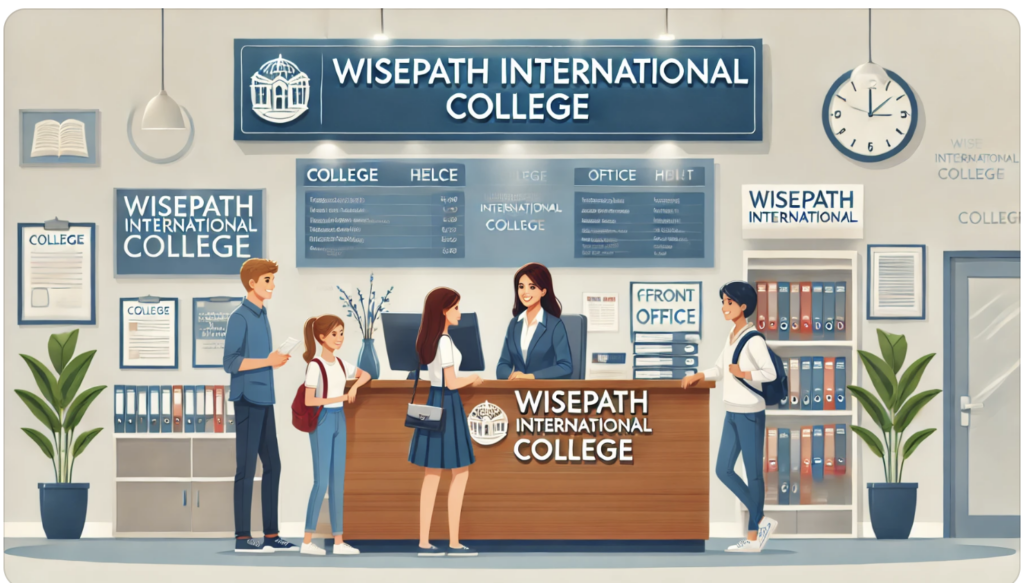
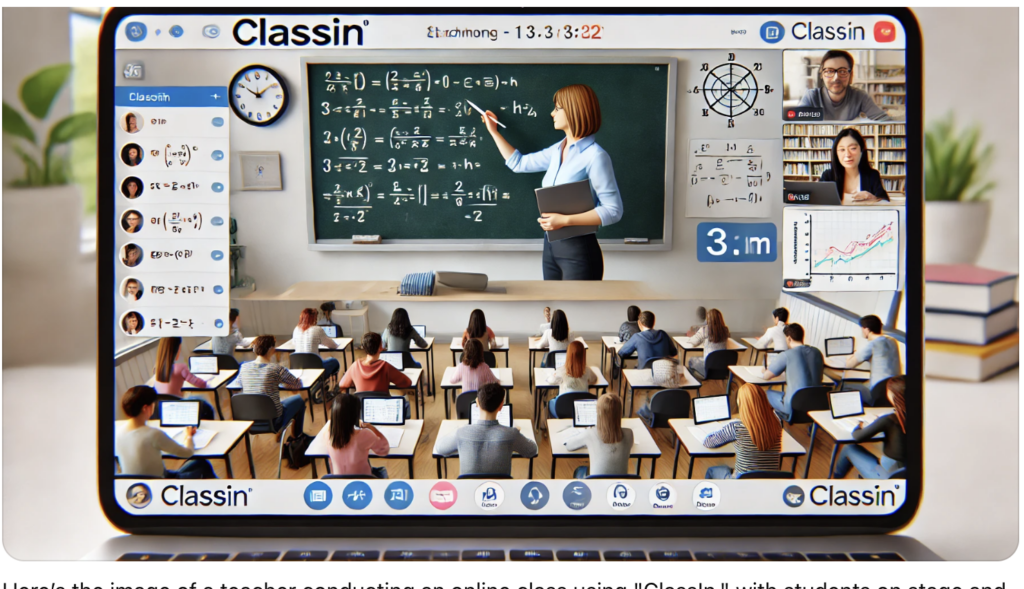


CBC Grade 6 SUBJECTS
- English: Advancing reading, writing, listening, and speaking skills with a focus on comprehension, creative writing, grammar, and vocabulary expansion.
- Kiswahili: Further developing language skills in reading, writing, listening, and speaking, including more complex sentence structures, grammar, and composition.
- Mathematics: Building on concepts like fractions, decimals, percentages, ratio, geometry, algebra, data analysis, and problem-solving.
- Science and Technology: Exploring scientific concepts in depth, conducting experiments, and applying technology to solve practical problems.
- Social Studies: Deepening understanding of Kenyan history, geography, government, economy, and global connections.
- Religious Education: Fostering moral development, spiritual growth, and ethical decision-making, aligned with the learner’s religious background.
- Creative Arts: Promoting creativity through activities in visual arts, music, drama, and dance to enhance self-expression.
- Physical and Health Education: Promoting physical fitness, health awareness, teamwork, and sportsmanship through structured activities and games.
- Home Science: Focusing on life skills such as cooking, nutrition, home management, and personal hygiene.
- Agriculture: Developing knowledge of advanced farming techniques, crop production, animal husbandry, and environmental conservation.
- Pre-Technical and Pre-Career Education: Introducing practical skills in areas such as design, construction, and basic technical applications to prepare for future career exploration.
- Indigenous Language (Optional): Encouraging the use of mother tongue for cultural preservation and strengthening communication skills.
- Business Studies: Teaching foundational business and entrepreneurial skills, including financial literacy, marketing, and basic economics.
- Life Skills: Developing personal and social skills such as problem-solving, decision-making, communication, and conflict resolution.
This curriculum is designed to enhance learners’ critical thinking, creativity, and practical skills, preparing them for both academic advancement and real-life challenges.
CBC Grade 7 SUBJECTS
- English: Developing advanced reading, writing, speaking, and listening skills, with a focus on critical analysis, essay writing, grammar, and literature appreciation.
- Kiswahili: Strengthening comprehension, creative writing, grammar, and communication skills in Kiswahili, with an emphasis on understanding and analyzing texts.
- Mathematics: Building on algebra, geometry, ratios, percentages, statistics, probability, and advanced problem-solving techniques.
- Science: Exploring deeper scientific concepts in biology, chemistry, physics, and earth sciences, with an emphasis on experimentation and inquiry.
- Social Studies: Studying Kenyan history, governance, political systems, economic activities, global connections, and human rights.
- Religious Education: Promoting ethical and moral development, understanding of religious teachings, and fostering respect for different faiths.
- Creative Arts: Encouraging self-expression through visual arts, music, dance, and drama, fostering creativity and appreciation for cultural diversity.
- Physical and Health Education: Focusing on advanced physical activities, sports, health and fitness education, and the importance of mental well-being.
- Home Science: Providing practical skills in food preparation, nutrition, family management, and home economics.
- Agriculture: Teaching advanced agricultural practices, sustainable farming, crop production, animal husbandry, and environmental management.
- Pre-Technical and Pre-Career Education: Expanding practical skills in technical subjects such as design, construction, and computer applications, while exploring career pathways.
- Business Studies: Building foundational business knowledge, including entrepreneurship, financial management, marketing, and business ethics.
- Indigenous Language (Optional): Enhancing communication skills in the learner’s mother tongue to promote cultural heritage and identity.
- Life Skills: Focusing on personal development, decision-making, communication, teamwork, leadership, and conflict resolution skills.
- Citizenship Education: Promoting understanding of citizenship, human rights, and responsibilities within the community and nation.
This curriculum aims to prepare learners for higher education and future career paths, fostering critical thinking, problem-solving, and responsible citizenship.



CBC Grade 8 SUBJECTS
- English: Focusing on advanced reading, writing, speaking, and listening skills, with an emphasis on critical analysis, essay writing, research skills, and literature.
- Kiswahili: Strengthening comprehension, creative writing, literature analysis, and communication skills in Kiswahili, including complex texts and discussions.
- Mathematics: Expanding knowledge in algebra, geometry, probability, data handling, number theory, and advanced problem-solving techniques.
- Science: Delving deeper into topics in biology, chemistry, physics, and earth sciences, with an emphasis on practical applications, experimentation, and scientific inquiry.
- Social Studies: Studying complex issues in Kenyan and global history, governance, economic systems, international relations, and human rights.
- Religious Education: Exploring advanced religious teachings, ethical values, interfaith dialogue, and moral reasoning, with a focus on real-life applications.
- Creative Arts: Enhancing creativity and self-expression through visual arts, music, drama, and dance, with emphasis on cultural diversity and artistic techniques.
- Physical and Health Education: Fostering fitness and health awareness, including advanced sports, mental health, nutrition, and the importance of a healthy lifestyle.
- Home Science: Developing practical skills in food preparation, nutrition, family resource management, and consumer education.
- Agriculture: Exploring advanced agricultural techniques, sustainable farming practices, crop production, and environmental conservation.
- Pre-Technical and Pre-Career Education: Expanding practical technical skills in areas like technology, engineering, design, and computer applications, preparing learners for future careers.
- Business Studies: Providing in-depth knowledge in entrepreneurship, financial literacy, marketing strategies, business management, and ethical business practices.
- Indigenous Language (Optional): Enhancing proficiency in mother tongue to strengthen communication skills and preserve cultural identity.
- Life Skills: Focusing on personal growth, decision-making, critical thinking, leadership, communication, and conflict resolution skills for effective citizenship.
- Citizenship Education: Promoting active citizenship, understanding of national and global issues, human rights, and the role of individuals in societal development.
The Grade 8 curriculum emphasizes the development of practical, academic, and personal skills, preparing learners for transition to secondary education and further career exploration. It also fosters responsible citizenship and critical thinking.
CBC Grade 9 SUBJECTS
- English: Focusing on advanced reading, writing, speaking, and listening skills, with an emphasis on analysis, research skills, essays, and creative writing.
- Kiswahili: Developing proficiency in reading, writing, speaking, and listening, with a focus on advanced grammar, comprehension, and literary analysis.
- Mathematics: Covering algebra, geometry, trigonometry, statistics, probability, and advanced problem-solving methods.
- Science: Exploring specialized scientific fields such as biology, chemistry, physics, and earth sciences, emphasizing experimentation, analysis, and scientific reasoning.
- Social Studies: Studying advanced concepts in history, geography, economics, politics, governance, human rights, and global interconnections.
- Religious Education: Fostering deeper understanding of religious philosophies, ethical values, comparative religion, and moral decision-making.
- Creative Arts: Encouraging artistic expression through visual arts, music, drama, and dance, focusing on technique, creativity, and cultural exploration.
- Physical and Health Education: Promoting fitness, sports, nutrition, mental well-being, and physical health education with an emphasis on personal growth.
- Home Science: Exploring advanced concepts in food science, nutrition, family resource management, and consumer education.
- Agriculture: Expanding knowledge in sustainable farming practices, crop management, livestock farming, and environmental conservation techniques.
- Pre-Technical and Pre-Career Education: Providing specialized skills in technology, engineering, design, computer applications, and practical work experience for career preparation.
- Business Studies: Building knowledge in business management, entrepreneurship, financial literacy, marketing strategies, and organizational behavior.
- Indigenous Language (Optional): Strengthening proficiency in mother tongue to promote cultural identity, communication skills, and preservation of heritage.
- Life Skills: Focus on personal development, decision-making, leadership, effective communication, problem-solving, and social responsibility.
- Citizenship Education: Exploring issues related to national identity, governance, community development, human rights, and global citizenship.
The Grade 9 curriculum builds on foundational knowledge, focusing on in-depth academic learning, practical skills, and critical thinking to prepare students for higher education or the workforce. It emphasizes holistic development, responsible citizenship, and career readiness.
KCSE Form 2 Subjects 8-4-4
Core Subjects (Mandatory for All Students)
- English Language – Focuses on developing reading, writing, listening, and speaking skills in English.
- Kiswahili Language – Enhances proficiency in Kiswahili, including grammar, literature, and oral skills.
- Mathematics – Covers essential mathematical concepts like algebra, geometry, and statistics.
- Biology – Explores living organisms, their structures, functions, and environmental interactions.
- Chemistry – Studies matter, its composition, properties, and reactions.
- Physics – Deals with the principles of energy, forces, motion, and matter.
- Geography – Examines physical and human geography, including maps, climate, and resources.
- History and Government – Chronicles historical events and governance systems in Kenya and beyond.
- Religious Education – Offers options:
- Christian Religious Education (CRE) – Provides moral and spiritual lessons based on Christian teachings.
- Islamic Religious Education (IRE) – Teaches Islamic beliefs, values, and practices.
- Hindu Religious Education (HRE) – Introduces Hindu traditions, ethics, and spirituality.
Optional Subjects
Students may select from the following categories to align with their interests and career aspirations:
1. Business and Agriculture:
10. Business Studies – Covers entrepreneurship, trade, and financial management principles.
11. Agriculture – Teaches crop and animal production, soil management, and farming practices.

2. Technical and Vocational Subjects:
12. Home Science – Focuses on nutrition, clothing, and home management skills.
13. Woodwork – Teaches carpentry and furniture-making skills.
14. Metalwork – Focuses on shaping and joining metals for functional purposes.
15. Building Construction – Introduces techniques in construction and architecture.
16. Power Mechanics – Covers the principles of mechanical systems and engines.
17. Electricity – Deals with electrical systems, circuits, and practical wiring.
18. Drawing and Design – Teaches technical drawing and visual design principles.
3. Creative Arts:
19. Music – Develops appreciation and skills in music theory, composition, and performance.
20. Art and Design – Explores creativity through drawing, painting, and crafts.
4. Foreign Languages:
21. French – Enhances communication skills in French.
22. German – Enhances communication skills in German.
23. Arabic – Enhances communication skills in Arabic.
5. Computer Studies:
24. Computer Studies – Introduces computer literacy, programming, and applications.
KCSE FORM 3 SUBJECTS
- English: Focus on advanced skills in reading, writing, listening, and speaking, with emphasis on literature, critical analysis, and research writing.
- Kiswahili: Developing advanced communication skills, including comprehension, creative writing, oral literature, and grammar analysis.
- Mathematics: Exploring advanced algebra, trigonometry, calculus, probability, statistics, and mathematical reasoning.
- Physics: In-depth study of mechanics, heat, light, electricity, magnetism, and wave theory, with emphasis on practical experimentation and problem-solving.
- Chemistry: Advanced concepts in chemical reactions, atomic structure, organic chemistry, acids and bases, and stoichiometry. Practical laboratory work is integrated to reinforce theoretical learning.
- Biology: Comprehensive study of living organisms, cell biology, ecology, genetics, evolution, and human anatomy. Emphasis on scientific methods and practical investigations.
- Geography: Detailed study of physical and human geography, including landforms, climate, population, settlement patterns, and economic activities.
- History and Government: Exploring African and world history, Kenya’s political and constitutional development, and the structure of government, political ideologies, and international relations.
- Business Studies: Introduction to business concepts, entrepreneurship, marketing, finance, human resources, and business law.
- Economics: Study of economic principles, scarcity, production, distribution, economic systems, market structures, and the role of government in the economy.
- Agriculture: Advanced agricultural practices, crop production, animal husbandry, agricultural economics, and sustainable farming techniques.
- Computer Studies: Learning programming, software applications, hardware, data management, and the use of ICT in various sectors.
- Religious Education: Study of religious beliefs, practices, ethics, and values, with focus on Christianity, Islam, or Hinduism.
- Physical Education: Emphasizing physical fitness, sports, games, coaching techniques, and understanding of the body and health.
- Home Science: In-depth study of nutrition, home management, food science, textiles, and consumer education.
- Art and Design: Encouraging creativity in visual arts, design principles, sculpture, and artistic expression.
- French / Other Foreign Languages (Optional): Learning advanced language skills, including speaking, reading, writing, and cultural studies.
- Music: Advanced study in music theory, performance, and appreciation of various musical genres and traditions.
- Drama and Theatre Arts: Exploring dramatic techniques, performance, theatre history, and scriptwriting.
- Mathematical Construction and Design: Study of technical drawing, design principles, and the application of mathematics in design and construction.
The Form 3 curriculum in the 8-4-4 system prepares students for their final KCSE exams by expanding their knowledge in various subjects while encouraging critical thinking, problem-solving, and hands-on experiences in practical subjects. It emphasizes both academic learning and the development of life skills.
KCSE FORM 4 SUBJECTS
- English: Advanced studies in reading, writing, listening, and speaking, with a focus on literature, essay writing, critical analysis, and advanced grammar.
- Kiswahili: Emphasis on in-depth comprehension, creative writing, oral literature, and the application of advanced grammar and vocabulary.
- Mathematics: Finalizing the study of topics such as calculus, advanced algebra, trigonometry, geometry, probability, statistics, and mathematical modeling, with an emphasis on problem-solving.
- Physics: Advanced topics in mechanics, thermodynamics, optics, electricity, magnetism, and waves, along with intensive practical experiments and applications of scientific principles.
- Chemistry: Deep exploration of organic chemistry, chemical bonding, acids and bases, electrochemistry, and the application of chemical principles in various industries and real-life situations.
- Biology: Detailed study of ecology, human biology, genetics, evolution, plant biology, and biotechnology, with a focus on practical research and investigations.
- Geography: Comprehensive study of physical geography (landforms, climate, weather), human geography (population, settlement patterns, economic activities), and environmental management.
- History and Government: Detailed study of world history, African history, Kenya’s independence struggle, the Constitution, governance, politics, and international relations.
- Business Studies: Advanced topics in business management, entrepreneurship, marketing, accounting, human resources, and business ethics, with a focus on practical applications.
- Economics: Study of advanced economic concepts such as market structures, fiscal policies, monetary policies, development economics, and international trade.
- Agriculture: In-depth study of modern agricultural practices, farm management, crop protection, livestock production, and agricultural economics.
- Computer Studies: Advanced topics in programming, data management, computer applications, networks, and the use of ICT in various fields such as education, business, and government.
- Religious Education: A deeper exploration of religious doctrines, moral ethics, social justice, and comparative religious studies, depending on the learner’s religious orientation.
- Physical Education: Advanced study of physical fitness, coaching techniques, sports science, anatomy, physiology, and the importance of maintaining an active lifestyle.
- Home Science: Focus on advanced topics in nutrition, food science, textiles, home management, family budgeting, and consumer education.
- Art and Design: Developing technical and creative skills in visual arts, design, sculpture, and appreciating various forms of art.
- Music: Advanced music theory, performance, appreciation of various music genres, and understanding of musical history and composition.
- Drama and Theatre Arts: Study of advanced performance techniques, dramatic literature, stage management, directing, and theatrical production.
- French / Other Foreign Languages (Optional): Mastery of advanced language skills in speaking, listening, reading, and writing, with a focus on cultural understanding and fluency.
- Mathematical Construction and Design: Advanced topics in technical drawing, architectural design, and the application of mathematics in real-world design and construction projects.
The Form 4 curriculum focuses on consolidating the knowledge gained over the previous years, with an emphasis on preparing students for their final KCSE exams. It includes both theoretical and practical learning across various subjects, preparing students for further education or entry into the workforce. The curriculum fosters independent thinking, advanced skills in academic disciplines, and practical life skills.


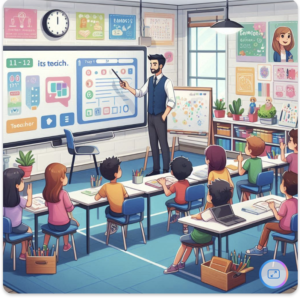

Tips for Choosing your Optional subjects for your career and occupation.
Here are some key tips on how to make the best subject options suited for your career training and occupation:
Identify Your Career Interests:
- Begin by considering what you enjoy doing and the kind of career you envision. For example, if you’re interested in healthcare, subjects like Biology and Chemistry are essential. For technology-focused careers, Mathematics and Computer Studies are crucial.
Research Career Pathways:
- Research different careers and the qualifications required for each. Understanding the skills and knowledge needed for your desired career will help guide your subject choices. For instance, if you’re aiming to be an engineer, you should prioritize subjects like Physics, Mathematics, and Technical Drawing.
Consider Your Strengths:
- Choose subjects that align with your strengths and skills. If you’re good at problem-solving and logical thinking, subjects like Mathematics and Physics will suit you. For creative careers such as design or media, subjects like Art, Music, and Drama may be more appropriate.
Consult Career Guidance Counselors:
- Seek advice from teachers or career counselors who can provide insight into the subject choices that best suit your career goals. They can also guide you on subject combinations that open up opportunities in various fields.
Balance Your Subject Load:
- Ensure that your subject options provide a balance between academic strength and personal interest. For example, don’t overwhelm yourself with only science or only arts subjects; balance them to avoid burnout while still focusing on your career goals.
Understand Subject Requirements for Higher Education:
- If you plan to attend university or college after secondary school, check the subject requirements for the courses you want to pursue. Universities often have specific subject requirements for entry into various degree programs.
Plan for Job Market Trends:
- Consider the trends in the job market when choosing your subjects. There are growing fields in technology, healthcare, engineering, and business, while other sectors may have more limited opportunities. Choose subjects that match future career demands.
Prioritize Practical Skills:
- Subjects that teach practical, hands-on skills, such as Agriculture, Home Science, and Business Studies, are valuable for careers that require practical work or entrepreneurship. These subjects can be crucial if you want to start your own business or work in specific industries.
Evaluate Subject Combinations:
- Some subjects work better together than others. For example, pairing Mathematics with Physics, or Chemistry with Biology, creates a strong foundation for careers in engineering, medicine, or environmental science. Choose combinations that complement each other and enhance your career prospects.
Stay Flexible and Open-minded:
- While it’s important to follow your passions and career aspirations, it’s also wise to keep an open mind. Your interests may evolve over time, and being flexible in your subject choices allows you to adapt to new career opportunities as they arise.
By carefully considering your strengths, career interests, and the future job market, you can make well-informed subject choices that align with your long-term goals, enhancing your chances for success in your chosen career path.
